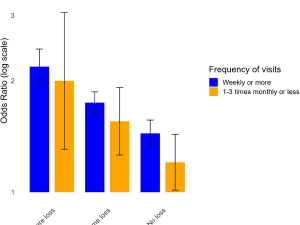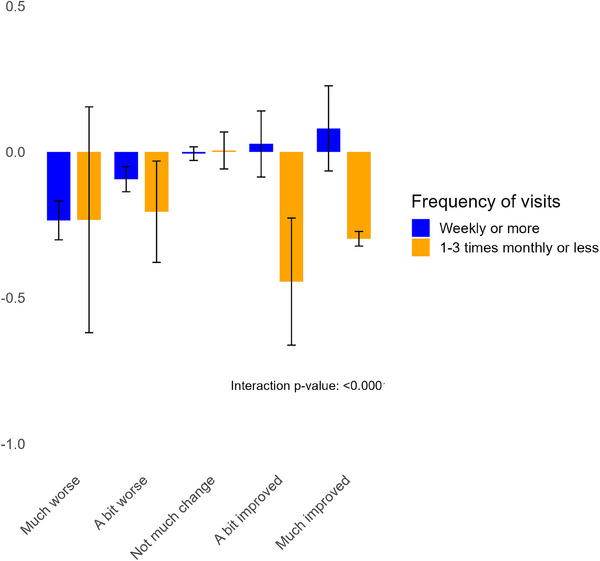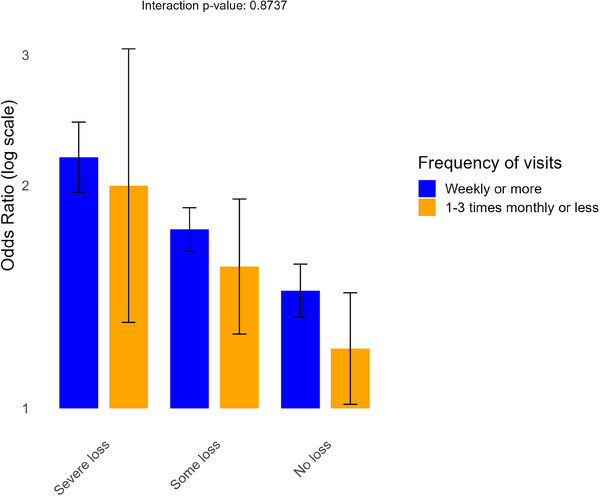Comparing retrospective informant assessments to prospectively collected cognitive measures in the Health and Retirement Study

Clinicians and researchers frequently ask informants about changes in a person's cognition, but whether informant assessments correspond to objectively measured change is unclear.
A subset (n = 2710) of US Health and Retirement Study participants and their informants completed the Harmonized Cognitive Assessment Protocol (HCAP). Using generalized estimating equations, we compared informant-reported change in memory and daily functioning to prospectively collected delayed word recall and instrumental activities of daily living (iADL) in the 10 years preceding HCAP.
Informant reports of worsened memory were associated with declining word recall, and informant-reported iADL loss was associated with declining iADLs. Informant-reported memory impairment was more strongly associated with declining word recall when informants saw the respondent weekly or more compared to one to three times monthly or less (p < 0.0001 for interaction).
Informant assessments of memory and iADLs are generally consistent with prospective measurements, but this relationship depends significantly on frequency of informant contact. Read more.

Association between informant assessment and longitudinal trajectories in delayed word recall stratified by informant frequency of contact.
